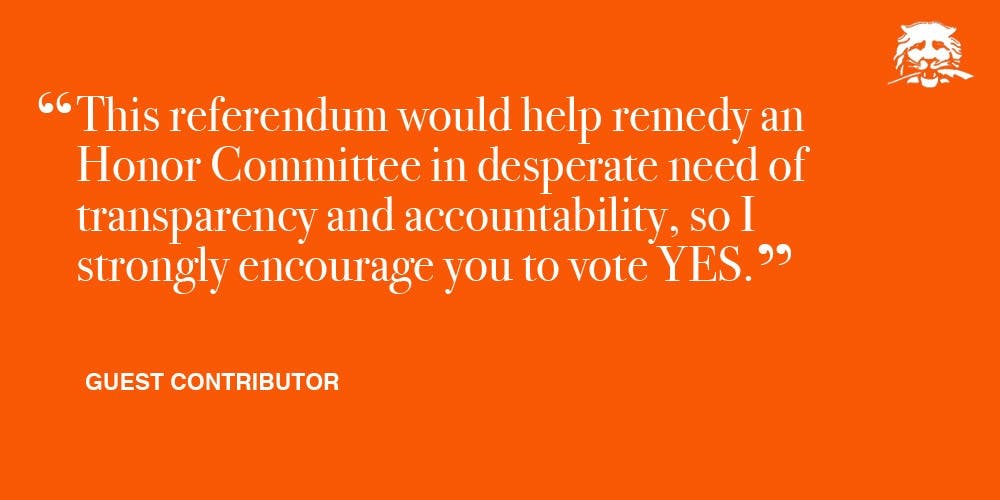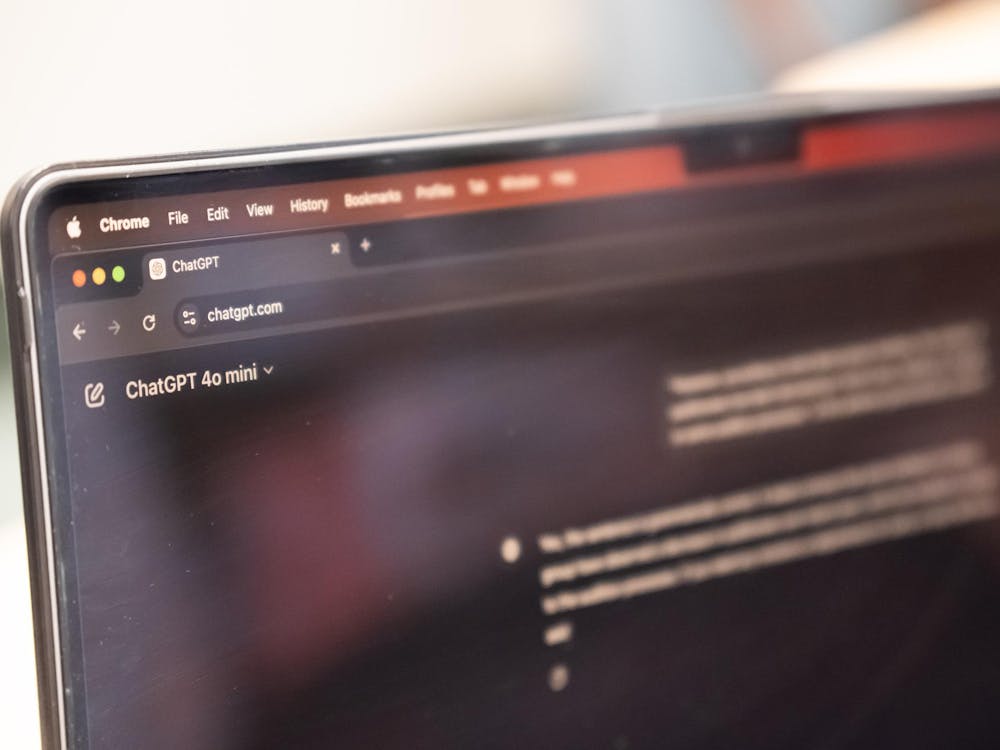Last winter, the passage of the four referenda concerning the Honor Committee made it clear that students wished to reform the Committee. The implementation of the fourth referendum opened the door to changing practices of the membership without changing the Committee’s current institutional framework. While we may not be able to change the “rules” of the Committee, we can and should ensure members are “playing by the rules.”
The first piece of the referendum gives a member of the Committee the right to communicate their concerns with the leadership to the student body. This measure serves two purposes: informing students of questionable behavior taking place on the Committee and beginning a dialogue between Undergraduate Student Government and the Committee. The member pursuing this “evaluation” does not need to continue the evaluation after this step.
The second piece of the referendum gives that same member the opportunity to petition the leadership: either the clerk or the chair. Here, the member would interview against the serving leadership before an independent committee composed of current and former members of the Committee and elected representatives of the USG Senate. Several mechanisms are in place to ensure a fair process for both candidates. First, the independent committee’s diverse composition promotes a conversation with different perspectives when discussing the candidates, helping avoid an arbitrarily decided outcome. Second, a two-thirds vote is required for any change in leadership to take place, a noticeably high bar. And third, the independent committee is mandated to issue a report communicating its reasons for the final outcome, thereby prompting a thoughtful response. If the historically low Honor Committee applicant pools and almost nonexistent clerkship applicant pools are any indication, this replacement mechanism is one that will happen on only the rarest of occasions.
Presently, accountability on the Committee is in serious disrepair. Having now served on the Committee for two years, I have witnessed several questionable actions taken by the leadership, which harbors almost complete authority over Committee practices with limited or no restrictions. Take for example the case of a past chair who, upon learning of current Committee members’ designing potential Constitution amendments, made the decision to confront them and demand that they stop. Each undergraduate has the right to propose referenda, and the Committee chair clearly overstepped in reprimanding members for doing so. Moreover, the leadership selection process itself is concerning, with a clerk selected in the spring of their sophomore year who then faces no other evaluative measures in transitioning to chair. In many cases, like this past year, a member on the Committee could even apply for the clerkship uncontested.
Current “accountability measures” are insufficient. A 12 out of 14 vote can remove any member “for neglect of duty.” However, not only is removing a chair through this approach extremely unlikely, but it also does not involve the students. Some also point to the administration’s right to overturn the Committee’s recommendations of penalty or findings of responsibility as a form of administrative oversight, but this is both notably rare and a procedure that affords no accountability on the regular processes and practices of the leadership.
With this referendum, these mechanisms will stand. However, there will also be opportunity to increase awareness of the Committee’s behavior and actively promote student participation in holding Committee leadership responsible. In a time when the student body overwhelmingly believes in reforming the system, we must demand more accountability and more transparency.
Concerns have been raised about confidentiality in the evaluation process. However, this will not be an issue for several reasons. First, in my experience, there have been numerous instances of unprofessional behavior that have taken place outside a “confidential” setting. Second, it is important to remember that confidentiality is designed to protect students under investigation, not members of the Committee. There have been numerous cases in which students under investigation have issued statements describing the inappropriate conduct of the leadership of the Committee. These blatant abuses cannot go unaddressed. Third, and most importantly, there exist several metrics to evaluate candidates that come before the independent committee which do not raise any concerns of confidentiality. For instance, evaluating how the candidates think through the same hypothetical scenarios says a great deal. Additionally, asking the candidates critical questions regarding the Committee’s conduct and their views on current issues facing the Committee may be fruitful. In cases where the candidates parallel one another’s responses, the independent committee would likely defer to the sitting leadership.
Ultimately, I believe that the mere potential for this process to take place will encourage the Committee leadership to think more critically about its behavior and professionalism. This referendum would help remedy an Honor Committee in desperate need of transparency and accountability, so I strongly encourage you to vote YES.
Christopher Umanzor is a junior in the Wilson School from Severn, Md. He can be reached at cumanzor@princeton.edu. Umanzor is also a former contributor for the ‘Prince.’









